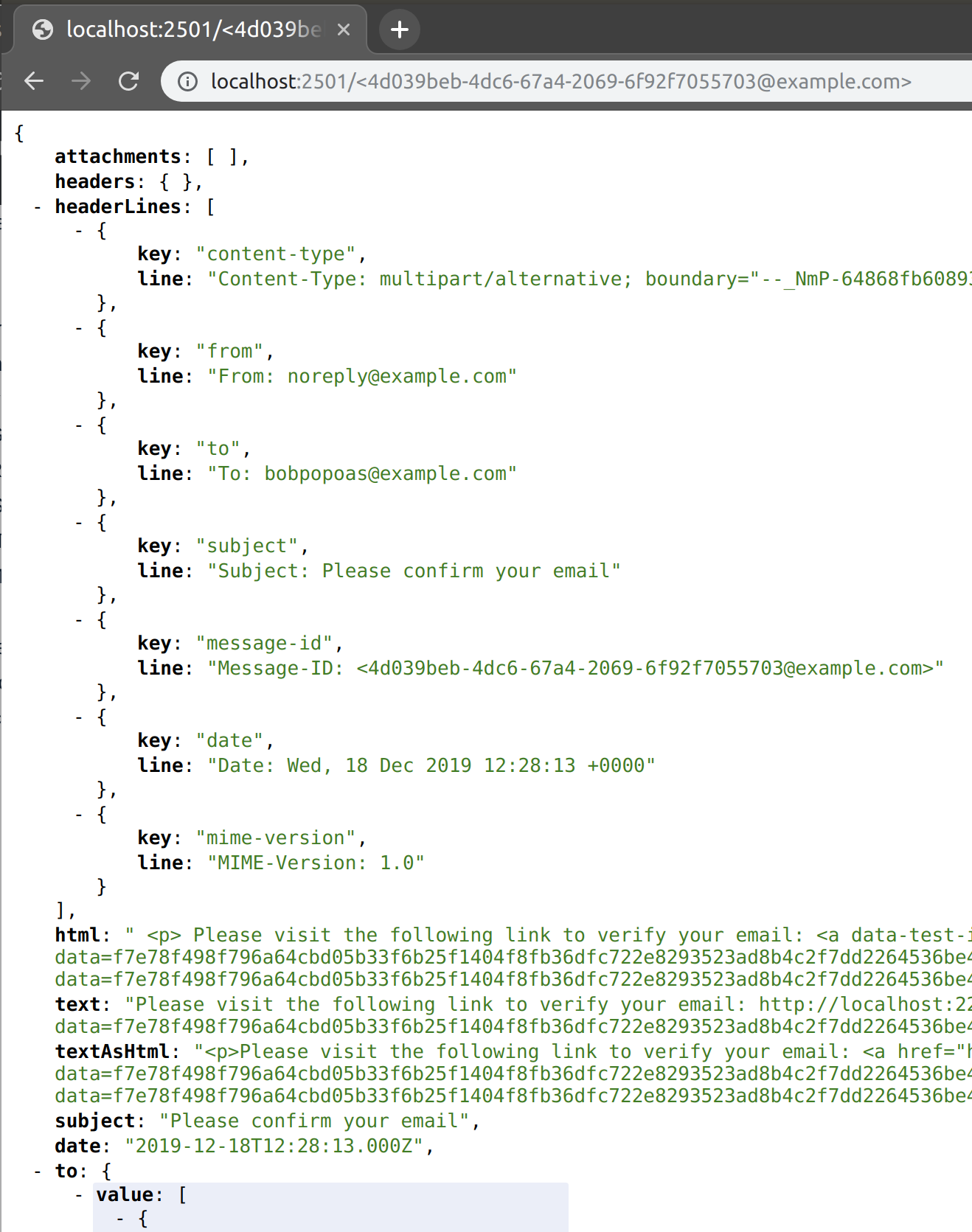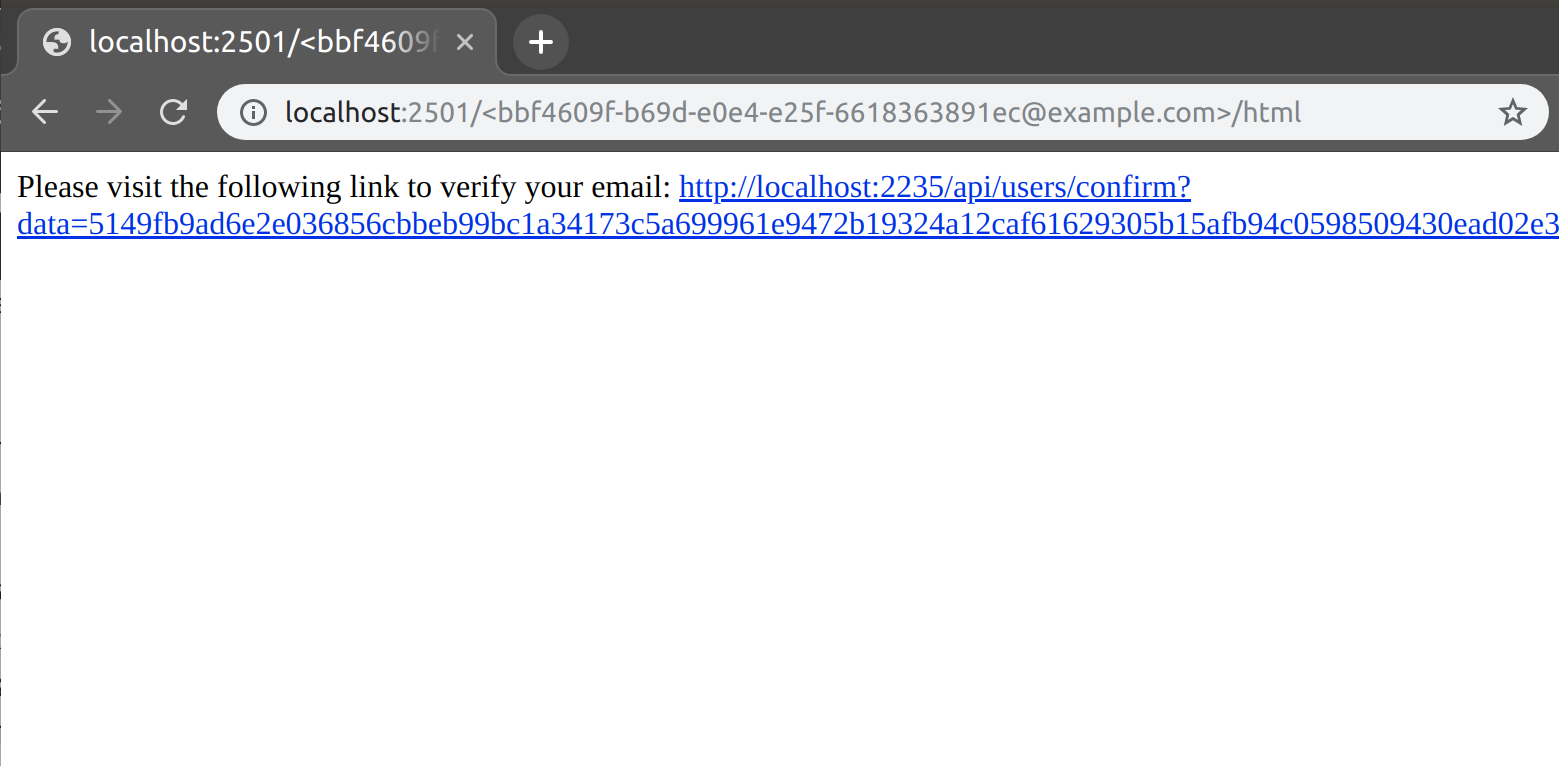
Research
Security News
Malicious npm Packages Inject SSH Backdoors via Typosquatted Libraries
Socket’s threat research team has detected six malicious npm packages typosquatting popular libraries to insert SSH backdoors.
@danielres/smtp-mini-dev-server
Advanced tools
This provides a very basic, non-secure SMTP server to use in development, test and staging environments.
This provides a very basic, non-secure SMTP server to use in development, test and staging environments.
Do not use this in production!
Persistance is ephemeral, in-memory only.
I find this to be a convenient replacement for tools like etherreal, mailcatcher and similar.
npm install --save-dev @danielres/smtp-mini-dev-server
or
yarn add -D @danielres/smtp-mini-dev-server
node_modules/.bin/smtp-dev
or
yarn smtp-dev
starts the SMTP server on port 2500 and the api server on port 2501.
Ports can be changed through environment variables:
Example:
DEV_SMTP_PORT=1234 DEV_SMTP_API_PORT=1235 yarn smtp-dev
const config = {
host: "localhost",
port: 2500,
secure: false,
auth: {
user: "username", // username and password don't matter, any are accepted
pass: "password"
}
};
const transport = nodemailer.createTransport(config);
const sendMessage = () => {
const message = {
from: "noreply@example.com",
to: "...",
subject: "...",
text: "...",
html: "<p>...</p>"
};
return new Promise((resolve, reject) => {
transport.sendMail(message, (error, info, response) => {
if (error) return reject(error);
const url = `http://localhost:2501/${info.messageId}/html`;
console.log({ url });
resolve({ info, response, url });
});
});
};
sendMessage()
The url of the email message will appear in your terminal output (console.log({ url })).
You can now:
http://localhost:2501 for a list of all received messages.http://localhost:2501/<MESSAGE_ID> for all data related to a paticular message.http://localhost:2501/<MESSAGE_ID>/htmlhttp://localhost:2501/<MESSAGE_ID>/text


FAQs
This provides a very basic, non-secure SMTP server to use in development, test and staging environments.
We found that @danielres/smtp-mini-dev-server demonstrated a not healthy version release cadence and project activity because the last version was released a year ago. It has 1 open source maintainer collaborating on the project.
Did you know?

Socket for GitHub automatically highlights issues in each pull request and monitors the health of all your open source dependencies. Discover the contents of your packages and block harmful activity before you install or update your dependencies.

Research
Security News
Socket’s threat research team has detected six malicious npm packages typosquatting popular libraries to insert SSH backdoors.

Security News
MITRE's 2024 CWE Top 25 highlights critical software vulnerabilities like XSS, SQL Injection, and CSRF, reflecting shifts due to a refined ranking methodology.

Security News
In this segment of the Risky Business podcast, Feross Aboukhadijeh and Patrick Gray discuss the challenges of tracking malware discovered in open source softare.